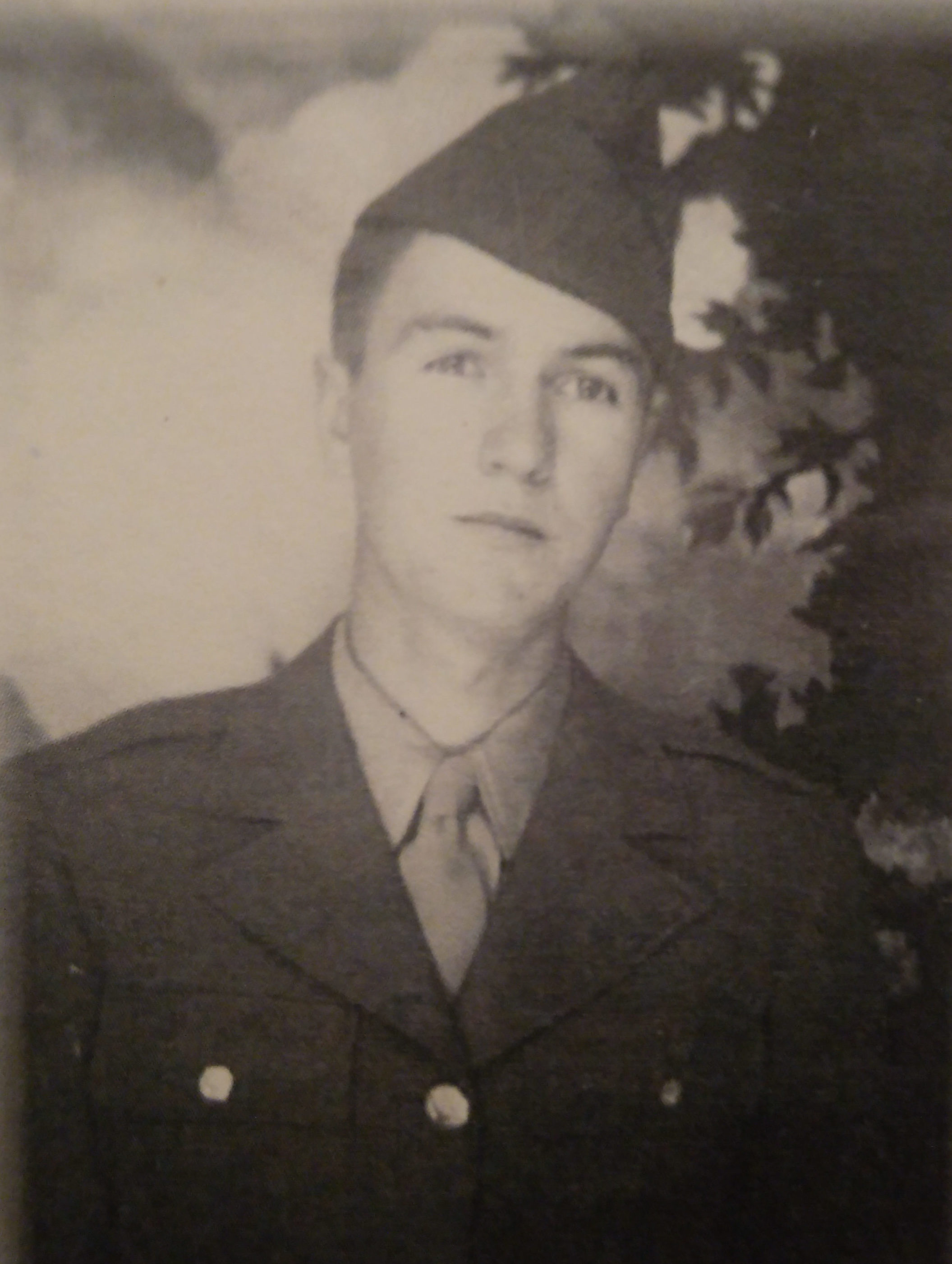The Nodaway County Historical Museum is home to several items of World War II memorabilia that have been donated by Nodaway County veterans and their families.
Walter Nicholson’s sons have donated items to the museum that Nicholson captured during WWII. Recently, Nicholson’s son, Norm, Jansen, NE, added a Mauser rifle which joins other items from his father in a large case.
Nicholson served as a US Army radio communication operator, or T-Patcher, in the Fighting 36th infantry based out of Texas. He was a staff sergeant, staying close to and reporting to his Commanding Officer, Lieutenant Colonel Marvin J. Coyle.
Nicholson shipped out for overseas from New Haven, CT, and landed in Naples, Italy. After Salerno Beach, Italy, came the southern invasion of Italy. Next, his division traveled up through France and Germany into Austria.
One of the spoils of war that Nicholson treasured was a pistol he carried in a brown shoulder holster under his jacket. It was a German P38 he recovered from an officer command bunker. A few days later, his outfit was taken in and sheltered by a German family in a house where Nicholson was allowed to set up radio communications. The patron of the house did leather craft and gunsmithing. He made the brown shoulder holster for Nicholson. Norm remembers his dad saying, “That P38 pistol saved my life many, many times!”
Because Nicholson was a communications man with a heavy radio, it was difficult for him to carry his army issue rifle. Instead, he carried a 45-caliber side arm US army issue pistol, but it was stolen or borrowed from him at a time of heavy fire. Norm reported that “he thought by one of our own soldiers.”
Another memory that Norm shared from his dad’s adventures involved twin brothers, Ron and Don Courtney, who were killed in a jeep. “A heartbreaking story happened when Dad was to go with a pack radio unit in a jeep with a driver to deliver the unit down the line to more of our boys aways away. The driver of the jeep was shocked to see his brother emerge at that instant, said Dad.”
At that time, brothers could serve in the military at the same time in the same unit. The twins had not seen each other for several days and pleaded to be placed together.
“Dad got the ‘ok’ and the brothers said they wanted to visit and that this might be the last time they would have together. Dad and those with him saw them pull away a few yards as the jeep took a direct hit from the constant ongoing shelling. Both brothers were killed,” Norm explained. “Dad said, ‘although I never had a biological brother, I lost two brothers that day.’”
Many of Nicholson’s memories were near-death experiences.
“One such event happened when the fighting and shelling was at its worst. They were in a mostly devastated small town trying to hunker down when Dad thought he had been hit. A quite large roof tile slid off the roof of a building as it was shelled by German opposition and hit him on the helmet,” Norm said.
Another close call for Nicholson was remembered by Norm. The radio communication job required setting up an 80-pound backpack radio unit in the highest place available. The antennae had to be raised as high as the operator could manage. “Dad found an empty building and lugged the radio up to the top floor and got it set up. About that time nature called and he headed to the stairs to go down to a bathroom. Just as he took a step down, a shell came through the roof and destroyed the radio and top floor. Dad was uninjured and said the nature call had been answered also!”
Norm continued, “Dad related stories of the Siegfried Line, where the Germans had set up miles of huge concrete pillars and built concrete bunkers to house huge tank stopper howitzer guns and machine gunfire.”
From writings from the Texas Military Forces Museum, the Siegfried Line was described this way:
“Little more than two miles north of Wissembourg, the main line of German heavy fortifications – the Siegfried Line or Westwall – faced the Allied invaders as they plunged into Germany…. After planting the Lone Star flag on the Schweigen customs house, T-Patchers smashed on through this hard core of the Westwall, taking to the hills in a strenuous pillbox-to-pillbox advance and reducing the enemy’s most violent opposition.”
Norm said he is glad his father was able to go on one of the first Honor Flights to Washington, DC, to see the WWII Memorial. “He was very pleased with the memorial and the treatment they all received while there and the welcome home afterwards,” Norm said.





Facebook Comments